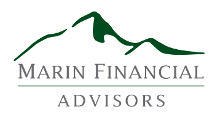What’s Been Happening?
Our only major asset class that has fallen in value recently has been Real Estate, as measured by the total return on REITs. It seems likely there is a connection to the sub prime loan losses that are now being reported in the tens of billions of dollars (WSJ, 7.9.2007). Large growth stocks, especially technology, are on the rise. The total return of the S&P 500 exceeded 20% for the twelve months ending 6/30/2007.
Money has continued to flow into Emerging Market Securities, driving up prices. The MSCI Emerging Market Index is up over 45% for the past twelve months. Small cap and value strategies in these markets have been even better. This is one of those times we might be able to use bubble and bath in the same sentence, and still be talking about securities.
Trends to be Aware of
In sports it is often said that defense wins games. Risk management is the equivalent concept in investing. Our rebalancing discipline automatically sells high and buys low when we trim back investments that have done the best most recently. Yet for most people a very significant asset, home equity, never gets risk managed.
We have been investigating an offering from a company that offers an upfront, tax-free payment in exchange for a share of the future appreciation of your home. Think of it as an evolution of the reverse mortgage concept though different in many ways. This is a very interesting concept for anyone who expects home prices to be flat or down over the next five years or so and has a need for cash now. We’re not sure if the current crop of products is quite ready for prime time, but in many cases these contracts offer superior solutions versus a reverse mortgage. We’re happy to review this concept with you to see if it might be a fit for your situation.
What To Expect From Here
In hindsight, we were right three months ago to not be worried about financial markets, lonely as that position may have seemed. We continue to believe the best way to position oneself is to remain diversified and to rebalance in a disciplined manner. For example, three months ago a natural reaction to the five-year 30% annual return in emerging markets would be to eliminate that position. Having done so would have resulted in missing the highest asset class return of the second quarter of 15%. We continue to trim the currently out performing asset classes rather than try to time the market.
Some Numbers for Comparison:
The following table compares the main indices against which fund performance is measured. All figures are for the periods ending 6/30/2007.
|
Index |
What it Measures |
Last 3 Mos. |
Last 12 Months |
3 Years, Annlzd |
5 Years, Annlzd |
|
Standard & Poors 500 |
U S Stocks w/div |
6.28% |
20.59% |
11.67% |
7.33% |
|
Russell 2000 |
Small Stocks |
4.41% |
16.43% |
13.45% |
13.88% |
|
Morgan Stanley EAFE |
Foreign Stocks |
6.67% |
27.54% |
22.75% |
18.21% |
|
MSCI Emerging Mkts |
Emerging Mkts |
15.05% |
45.45% |
38.67% |
30.66% |
|
DJ World Stock Index |
Global Stocks |
7.16% |
25.40% |
18.51% |
15.72% |
|
Real Estate Inv Trusts |
Real Estate |
-9.47% |
11.64% |
22.29% |
19.48% |
|
Lehman 1-5 yr Govt/Cr |
Bonds |
0.38% |
5.57% |
3.15% |
3.11% |
|
CPI |
Inflation |
1.26% |
2.49% |
3.11% |
2.94% |
Source: Thompson Financial

